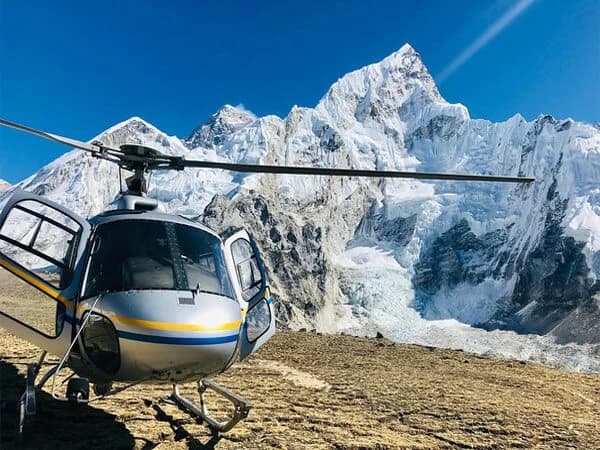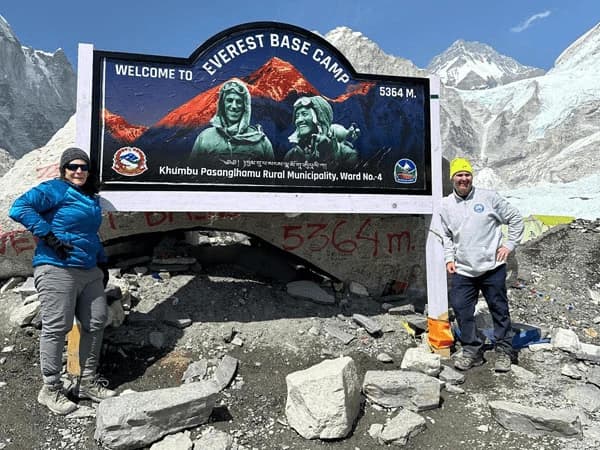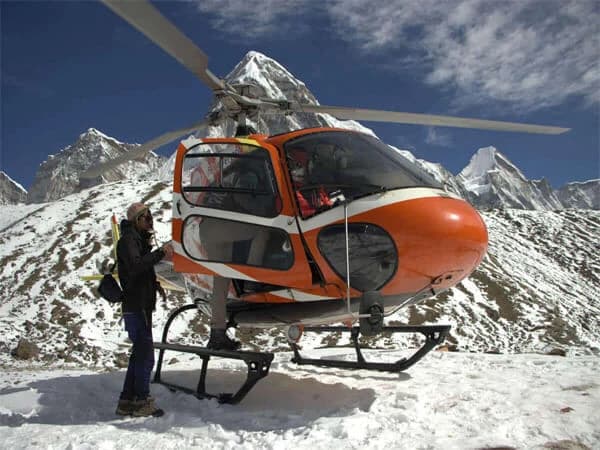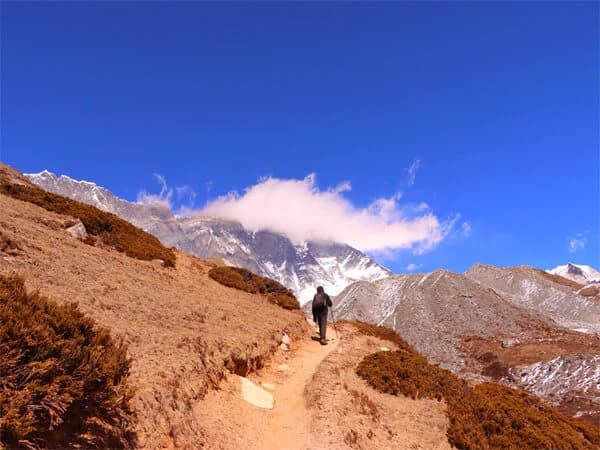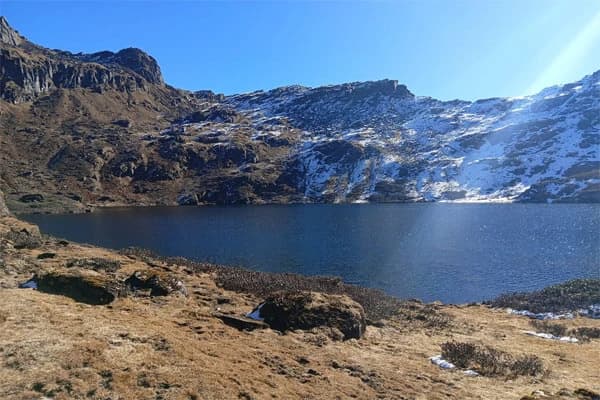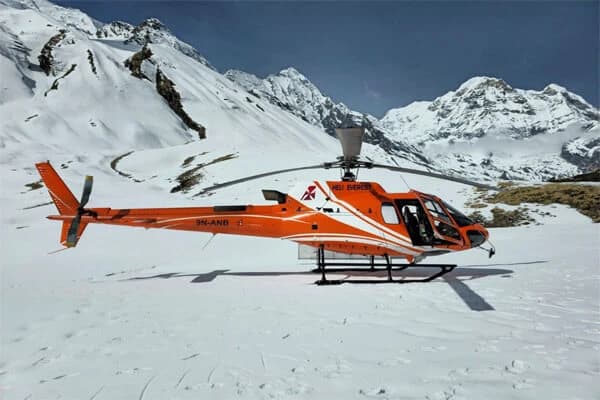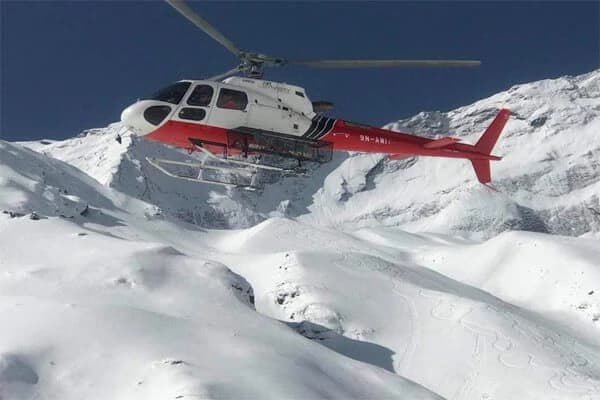Trekking in Nepal is a Himalayan country having 8 out of the 14 peaks above 8,000m in the world. It is geographically divided into three divisions: Terai, Hilly, and Mountain. It is one of the landlocked countries located in the South Asian Region.
Although it extends just to 147,181 square kilometers, all three major climatic zones are found in here. The variation in climate has resulted in variations in lifestyle, wildlife, and vegetation.
Nepal houses from the lowest landscape Kechana Kawal (58m) to the highest point Mt. Everest (8,848m). One can find from the tropical forests of the Terai region to the Alpine ones of the Mountain region.
Due to the variation in geography and lifestyle, trekking in Nepal has great potential. Moreover, the Great Himalayas Trails securing the nation from the Northern side are the added attractions to the avid trekkers from all over the world.
The different types of forests are inhabited by a large variety of animals and birds. Some of them are only found in Nepal like Spiny Babbler (a bird species). Endangered animals like the one-horned rhino and the Royal Bengal tiger draw the attention of travelers as well.
Adventure Trekking lovers worldwide choose Nepal as their first travel destination for lifelong experiences. The natural and cultural varieties are the first and foremost pulling factors. The rugged trails take you into the wilderness away from the crowded places.
Nepal Trekking rewards you with the alluring view of the glittering mountains, lush valleys, green forests, and diverse terrains. En route, you might encounter a large verities of animal and bird species.
Meeting with the friendly and honest people of the Himalayan region gives you a sense of true humanity. These people are economically poor but they have maintained the ethic “Guests are the God!”
Types of Trekking in Nepal
Getting firsthand experience about their day-to-day activities is another plus point of trekking in Nepal. More than this, you can taste the organic food items that differ from one ethnic group to the other.
If you visit Nepal once, you come to realize “Once is never enough!” The unexplored regions and hidden valleys are always calling you to witness their grandeur. You can find numerous short treks and longer ones requiring up to 157 days.
On the account that Nepal contains a large number of trekking regions, we can categorize them on different bases. Broadly, trekking in Nepal is divided into the following sections:
Trekking in Nepal based on Difficulty
Based on difficulty, trekking in Nepal is categorized into three groups. They are: strenuous or challenging, moderate and easy. Difficulty is measured on the basis of the elevation, condition of the route, and threat of natural calamities as well.
Natural calamities refer to the difficulties created by natural happenings like blizzards or glacial floods. These events in the High Himalayan regions create unexpected obstacles while trekking in Nepal.
Easy Trek in Nepal
The trek leads you up to 3000m elevation. This altitude can be covered by senior citizens and children as well. This is the most appropriate for family trekking in Nepal. Even beginners can get the experience of trekking by doing an easy trek.
Although lower in altitude, you can enjoy the mesmerizing vistas of the Himalayas. The high-altitude villages surrounded by green forests are lovely gifts. The trails are well-defined and comfortable to cover while doing easy trek in Nepal.
Moderate Trekking in Nepal
The moderate trek takes you between 2,500m and 4,000m so it may be challenging for beginners. The senior citizens and children can’t do this trek as the trails are uphill and downhill. As this trek demands good physical condition and mental determination, it is challenging for them.
Most of the trekkers who want to experience trekking in Nepal choose this level of trek. Therefore, such treks are sometimes called demanding treks. While walking for about 4/6 hours, you can have the astounding vistas of the Himalayas.
Challenging Treks in Nepal
In the context of Nepal, the last type of trekking is a challenging trek that leads you from 4,000m to 5,550. The highest place to reach during trekking in Nepal is Kalapatthar (5,550m).
Challenging treks in Nepal require thorough preparation including training to use climbing gears. You have to cross the high passes which can only be done by using crampons, hand lines, rope, etc. Previous trekking experience is required for this trek.
On the Basis of Duration Nepal Treks
Trekking in Nepal takes different durations to complete. Based on duration, it can be divided into:
Short Treks in Nepal
This trek takes only a few days (not more than a week) to complete. As this trek takes you up to 2,500m, there is no chance of altitude sickness. Anybody who has a normal level of fitness can do it.
Medium Trek
You have to walk for about two weeks along the uphill and downhill trails to complete this trek. You need to cross an altitude up to 4,000m and you need a good habit of walking and regular exercise. Here is the possibility for altitude sickness or Acute Mountain Sickness (AMS).
Long Trek
The trekking package that requires more than two weeks to complete is known as a long trek. Generally, the challenging trek falls under a long trek as it needs a longer time to complete the higher passes.
The passes higher than 4,000m fall under the challenging trek. You have to spend the nights above this altitude. Therefore, you may be affected with altitude sickness. You have to walk slowly by taking enough rest to avoid AMS.
Based on Food and Accommodation during the Nepal Trekking
Trekking needs good physical condition and mental strength. The physical condition depends upon the food and accommodation facilities you get during the trip. Mental strength is the result of good physical condition to cope with hardships. Based on food and accommodation, trekking in Nepal can be divided in to:
Camping Trekking in Nepal
A camping trek in Nepal refers to a trip in which you have to spend the night at the tented camp. Before the development of teahouses, this trek used to be the only option while trekking in Nepal.
Similarly, the crew containing a leader, cook, guide and porter is required for this trek. You have to carry the things required for preparing food items. You have to eat the cuisines prepared by the cook in your time.
It is a bit more expensive as you have to spend on the crewmembers and food items. However, the experience you get during this trek is invaluable. You can learn to prepare food items and have great fun with your team.
Teahouse Trek
In this trek, you don’t have to worry about managing the crewmembers and foodstuffs. What you have to do is just be focused on enjoying the mesmerizing view of the Himalayas and amazing landscapes.
You complete the trekking duration of a particular day and reach the teahouse for the night station. Nowadays, there are many hotels, lodges, and guesthouses at different stopovers in different trekking regions of Nepal.
Teahouse trek has comparatively low cost as you don’t have to pay for the crewmembers, porters, and guides. You can choose the menu available at the teahouses. You can relish the organic cuisines prepared by the local people.
Hiking Trekking
Generally, hiking is done to cover a definite distance for a particular purpose. As it covers a short distance, you needn’t worry about spending extra amount for food and accommodation facilities.
As soon as you complete the mission, you return to the hotel you have booked for spending the night. You have to manage lunch and water as much as you require, although. Hiking trek is specially done to climb a small hilltop to have an astounding view of the Himalayas and the lush valleys.
On the Basis of Number
On the basis of number, trekking in Nepal is divided into two groups. Solo trek is done by a single trekker without hiring any guide or porter. In other words, the trekker him/herself is responsible to manage everything they require for the trek.
Another is an organized trekking in Nepal. There are many local tour and trek operators who conduct the organized trekking in Nepal. In this type, you can book a trekking package in Nepal via the agency. Sometimes, they may suggest you to join the other group if it comforts you as well.
Nevertheless, we highly recommend you to consult with the local trekking company to do trek in Nepal. If you have travelled a particular region for many times and know the trails and region well, it may not be problematic.
If it is the first time or you don’t know much about the trekking trails and region, you have to hire a professional trekking guide. The trekking guide helps you find the right track and make other arrangements also.
In some cases, the solo trekkers in Nepal have gone missing or died from falling from the ridge. Sometimes, the trekkers are attack by the wild animals while they are walking alone. Besides, in case of emergency like AMS or other accidents, the trekking guides provides you a great help.
On the Basis of Permit of Nepal Trekking
The Government of Nepal has categorized the trekking regions of into two sections. The trekkers in Nepal can visit many tourist destinations as Free Individual Trekker (FIT) or in a group of many sizes. The places where free individual trekkers can go don’t need any special permits.
There are some places declared as the restricted areas where FITs cannot visit freely. They need a special permit known as the Restricted Area Permits to explore such places. The government of Nepal issues and supervises such permits.
To visit the restrict areas, there must be at least two members in a group support by a professional guide. To get the permits, you have to pay certain amount as fees. Other required permits are also needed to trek into such places without any obstructions.
Top Treks in Nepal
Nepal contains 8 of the 14 eight-thousands including the world’s highest peak, Mt. Everest (8,848m). The Great Himalayan Trail (1,700m) extends from far east to far west of the nation. The entire GHT is divide into ten major sections that can be visit by breaking down or all at once.
GHT is one of the world’s highest and largest trekking routes in Nepal. It is divided into two sections: High Route and Low Route. GHT High Route extends between Kanchenjunga Base Camp in the east to Hilsa in the west. This route with the highest altitude 6,146m takes nearly 150 days to complete it.
GHT Low Route runs from the east to west of Nepal with an average elevation of 2,000m. The total length of this route is 1,500km which needs around 100 days to successfully complete it. It runs through mid hills having the highest place the Jang La Pass (4,519m) between Dhorpatan and Dolpa.
The Major Sections of the GHT Nepal are:
- Kanchenjunga Section
- Makalu Section
- Everest Section
- Rolwaling Section
- Langtang Section
- Manaslu Section
- Annapurna Section
- Dolpo Section
- Jumla and Mugu Section
- Humla Section
The Top Treks in Nepal:
Trekking in Nepal Costs
Trekking in Nepal cost is determine by various factors associate with it. The major factors responsible for the cost are:
- Trekking destination
- The activities during the trekking
- Trekking seasons
- Duration of your trekking trip
- Accommodation
- Transportation
- Food and drinks
- Miscellaneous expenses
Best Season for Trekking in Nepal
Most of the Treks in Nepal can be completed at all times of the year. Trekking in the high altitude may not be favorable in winter due to the deposit of thick layers of snow. The high-altitude places are sometimes blocked as heavy snowfalls occur in such places.
Trekking in low-altitude places may be disturbed due to heavy rainfall. The lowlands receive a high amount of rainfall in summer or rainy seasons. However, the rain shadow areas can be explored in the rainy season. Upper Mustang Trek and Inner Dolpo region trek is best in this season.
The best season for trekking in Nepal is spring (March-May) and autumn (mid-September –October). In these seasons, the weather is fine with clear days. You can have the breathtaking vistas of the snowcapped peaks and the lush valleys surrounded by green forests.
Top Nepal Trekking Gears
You don’t need trekking gear to do easy treks in Nepal as they lie below 2,500m altitude. To go for moderate trekking, you need such gear if you have to go across high passes. But, to do challenging treks, you should take trekking gear and have some knowledge to use them as well.
The top trekking gears are:
- Trekking Pole
- Down Jacket
- Water Bottle
- Trekking Boots
- Flashlight or Headlamp and Batteries
- Gloves
- Duffle or Rucksack Bag
- Down Sleeping Bag
- Water and Windproof Jacket
- Cotton Thick Socks and Woollen Socks
- Sun Hat & Scarf
- Goggles or Sunglasses & Sun Lotion
- Thermal Long Underwear Sets
- Wind Breaker Pants
- Towels
- Personal Toiletries and Medication
- Full Sleeves T-shirts & Fleece Jacket
How to Book Trekking in Nepal
Booking your trekking in Nepal package with the most reliable trekking agencies is an important task. With the development of Information and Communication Technology, you can book trekking and tour programs with the help of an online booking system.
All the local tour and trekking operators of Kathmandu have uploaded the required information on their official websites. You can research the best program of your choice and other information about it. By using the booking tools as provisioned on the web, you can reserve it.
Among the local trekking companies established in Kathmandu, Nepal Trekking Routes is one. It is one of the most reliable agencies that is committed to providing the best tours and trekking package at the most reasonable cost to its clients. For more details about booking the right package, visit our website
Conclusion: Trekking in Nepal
In a nutshell, trekking in Nepal is a boon for trekkers who want to explore the unexplored and visit the unvisited! By collecting the required information about the package you want to book, you can talk to the reputable local trekking agency in Nepal. The agency always helps you to best satisfy your thirst for tour and trek in Nepal.
Nepal is the best trekking destination in the world as it is naturally gifted with the Great Himalayas and wonderful landscapes. The flora and fauna found in the varieties of climatic regions are also attractions to travelers from around the world.
More than this, Nepal is a multi-ethnic, multi-cultural, and multi-lingual country, you can find the mosaic of cultural assets. The typical cuisines served in the best hospitality can be a lifelong experience that one can hardly find in other parts of the world.


